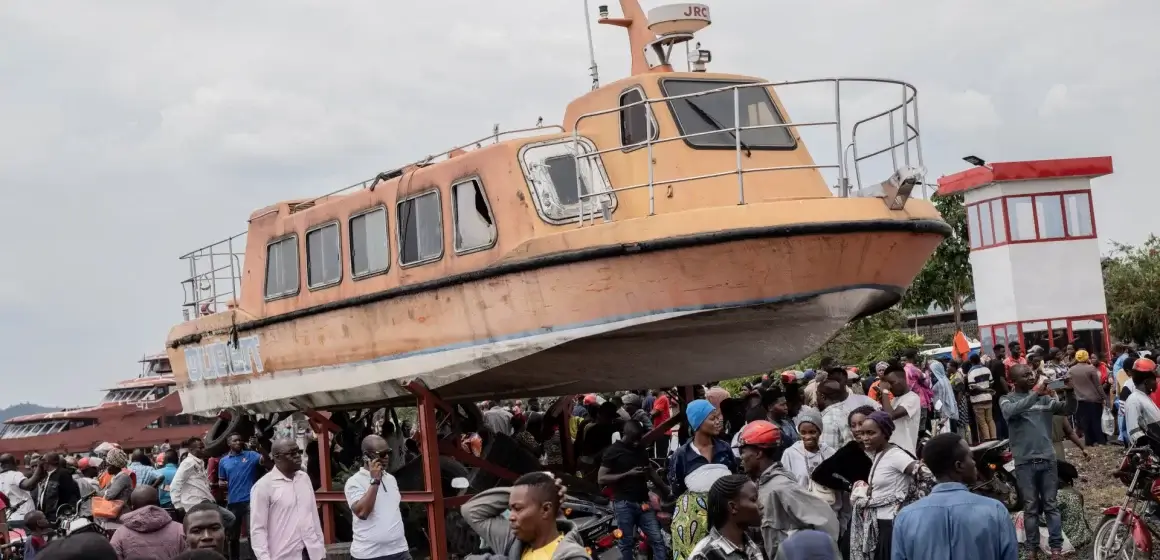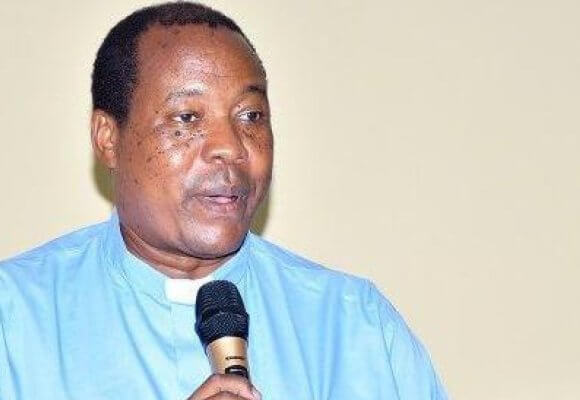|
LISTEN TO THIS THE AFRICANA VOICE ARTICLE NOW
Getting your Trinity Audio player ready...
|
At least 78 people Thursday lost their lives when a boat carrying 278 passengers capsized on Lake Kivu in eastern Democratic Republic of Congo. The vessel, loaded well beyond its capacity, overturned around 700 meters from the port, leaving a community grieving and searching for answers.
Families gathered onshore were overwhelmed with emotion as the bodies of their loved ones were placed in body bags and carried away, according to witnesses. Video footage, widely circulated online, showed the multi-deck vessel teetering sideways on calm waters before ultimately overturning, hurling passengers into the lake.
The exact number of victims remained unclear, as conflicting reports emerged from local officials. Governor Jean Jacques Purisi of South Kivu province stated that at least 78 people had died, with 278 individuals on board the ill-fated boat. However, the governor of the neighboring North Kivu province reported a confirmed death toll of 28, while also noting that 58 people had survived the accident.
Governor Purisi said that the final count could take days, as not all bodies had yet been recovered. Search operations continued over the weekend, with authorities striving to bring clarity to the tragedy. The boat capsized near its intended destination, and while investigations were ongoing, officials suspected that overcrowding may have played a significant role in the disaster.
Deadly boat accidents are not uncommon in Congolese waters. Due to frequent conflict in the region, roads have become dangerous or impassable, forcing many residents to use boats for transportation.
At a local hospital, 51-year-old survivor Alfani Buroko Byamungu recounted his terrifying ordeal. Conditions were calm, he said, as the boat began to tip. The overcrowded vessel simply could not remain stable, and as it went under, chaos ensued. “I saw people sinking—many went under. I saw women and children sinking in the water, and I myself was on the verge of drowning, but God helped me,” Byamungu said from his hospital bed, visibly shaken but grateful to have survived.
Meanwhile, tensions were high at the port in Goma, where the vessel had been expected to dock. A large crowd gathered, some weeping openly, while others shouted in anger, blaming local authorities for failing to address the root cause of the overcrowding on boats. Residents pointed to the long-running rebel conflict in eastern Congo as the reason for impassable roads, which has led to an increased reliance on dangerous boat journeys.
“All of this is part of the consequences of the war,” shouted Mushagulua Bienfait, a Goma resident who lost three relatives in the accident. He expressed frustration, saying, “They no longer make an effort to clear the enemies off the road so that it can become operational again.”
The Democratic Republic of Congo has long struggled with conflict, particularly in the eastern regions, where armed groups frequently clash with government forces. The fighting has left roads unsafe, making water transport the only viable option for many residents despite the dangers. In light of Thursday’s tragedy, demands for improved infrastructure and stricter regulations for boat operators have grown louder, with residents calling for a lasting solution to end the cycle of violence and neglect.











LEAVE A COMMENT
You must be logged in to post a comment.